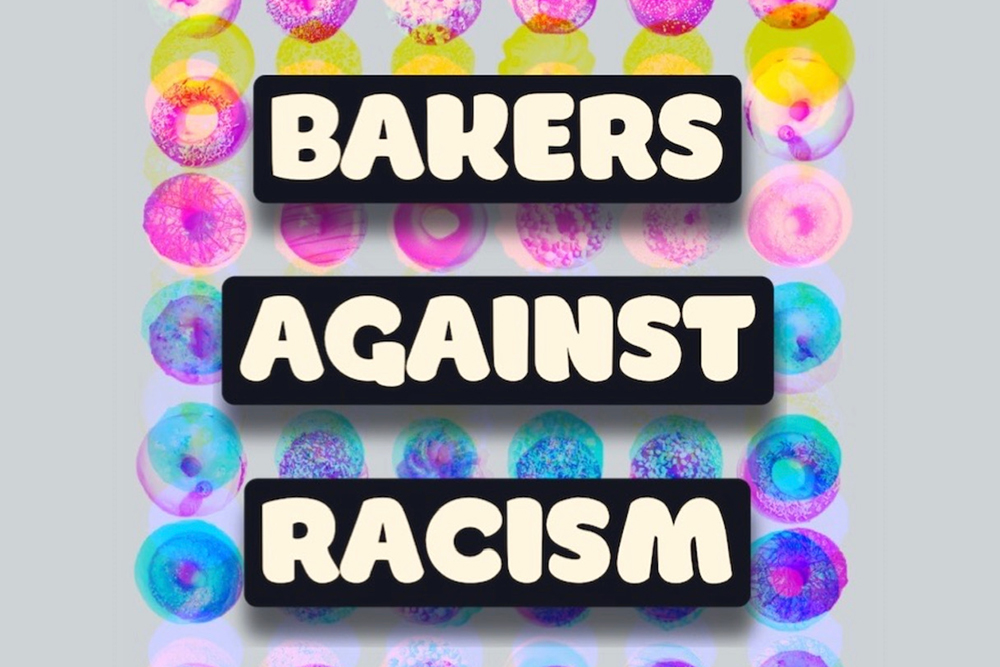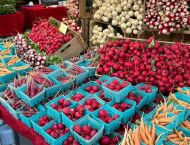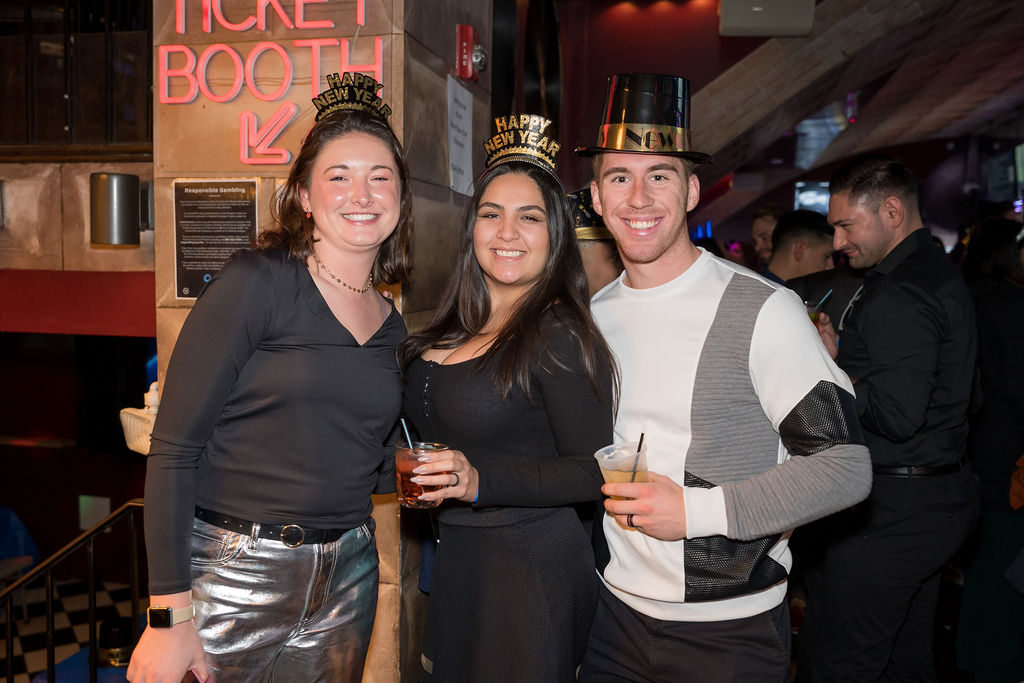Eat
 Graphic courtesy of Paola Velez.
Graphic courtesy of Paola Velez.
Bakers Against Racism Unites Pastry Chefs and Hobbyists for Virtual Bake Sale
June 11, 2020 @ 3:10pm
Like many, I found myself dusted in flour and surrounded by pastries, cakes and loaves of bread on most days during the stay-at-home order. Quarantine baking became an unstoppable trend as so many found solace in their kitchen. I shared my creations virtually on social media, prompting friends and family near and far to supportively tell me I should offer delivery, host a bake sale, or start a bakery. I laughed it off, assuming they were joking.
Then, there was the national uprising, as activists old and new mobilized and organized against the racist injustices that played out before our eyes. There was a resounding question: “what can I do?” Citizens marched, donated, and raised their voices in solidarity. A team of D.C. chefs put their heads together, and a worldwide movement was born around an oven.
In a little more than a week, two thousand home bakers and pastry chefs have come together with one rallying cry: Bakers Against Racism.
“At the beginning of this pandemic, you found comfort in baking, now I’ve helped you weaponized it to fight against racism,” says co-founder and Kith/Kin pastry chef Paola Velez.
Velez and her co-founders, pastry chef Willa Pelini of Emilie’s and chef Rob Rubba of the forthcoming Oyster Oyster, are harnessing the power of a collective to create a force against inequality. It all started when Pelini reached out to Velez, offering to team up on a pop-up bake sale, similar to Velez’s sold-out donut fundraiser for Ayuda, Doña Dona.
“I felt kind of defeated, because I had worked for a month, and my contributions were only $1,000,” Velez says. “I was like, ‘Man, I wish I was a trillionaire; I would just donate to everything.’”
Pelini’s message of support sparked something.
“[A thousand dollars] isn’t chump change, but it’s also not enough to make change,” Velez says. Instead of just one bake sale with two pastry chefs in D.C., she considered a virtual one with pastry chefs across the country. “We can decentralize it…If we give people the tools and the resources to sell, then anybody can sell from the comfort of their own businesses.”
Velez got to work crunching the numbers, with professional pastry chefs in mind, “All we need to do is sell 150 pieces of dessert at $8,” she reasons. “If you get 80 participants to participate at that amount of donation, that’s $96,000.”
Her husband encouraged her to invite home bakers to participate, and then surely they could reach the admirable goal of 80 bakers raising $96,000. Velez approached Rubba to create the art to promote the idea, and they let it loose.
“I posted online, and in a couple of hours, we had hundreds of participants,” Velez says. “We’ve been at the edge of our seat ever since. It’s been moving so fast. We are now on five continents. We are in 41 states. We are in 16 countries.”
“We’re going to fight against racism with what we know how to do best: food.”
Bakers are participating from as close as Richmond and as far as Australia, “I don’t even want to do the math because I feel lightheaded when I think about it.”
When I saw Velez’s first post, I was instantly on board. I was fired up to use my passion for baking as a force for good. That was precisely her goal.
“We’re going to fight against racism with what we know how to do best: food,” she says.
Bakers who reach out to participate are initiated with a tool kit of logistical tips and guidelines for how to successfully run a virtual bake sale. There’s a recommended timeline for the event, with bakers encouraged to start presales on June 15 at 2 p.m. and have the baked goods available for safe pickup on June 20.
These are all just recommendations though, and bakers shouldn’t feel obligated to meet the originally conceived quota of 150 pieces.
“My desire isn’t to have people feel like they have to burden themselves to participate in this,” Velez says.
She compares it to her philosophy with her pastry team in the kitchen at Kith/Kin: “They have my parameters on how to execute a desert correctly, but each person that makes a dessert makes it a little differently,” she explains. “As long as the end result is the same, I’m content.”
The end result is donating a majority of the proceeds to an organization in their community that supports black lives.
“At the end of this, all you need to do is provide a proof of receipt,” she says.
For Velez, the amount each baker raises isn’t as important as their participation and support.
“If you don’t sell a lot, that’s okay, because in the grand scheme of things, there’s so many of us participating right now,” she says. “I want people to understand that their work and their effort matters. All of us as a collective coming together is the movement.”
“This is a very small grassroots movement. We’re not a Fortune 500 company that has a bunch of money and a social media team.”
Velez has also been moved by the number of unemployed or furloughed pastry chefs who have reached out to lend their talents.
“I cried the other day, reading so many emails of so many talented individuals, knowing that we were all in the same boat, but we were still so willing to participate in this,” she says. “You could see the heart of hospitality in this movement.”
The original vision of dozens of bakers has grown beyond what Velez ever anticipated, and she, Pelini and Rubba have been working around the clock to ensure things go smoothly for all 2,000 participants.
“This is a very small grassroots movement,” Velez says. “We’re not a Fortune 500 company that has a bunch of money and a social media team.”
The team agrees that they are exhausted, but incredibly fulfilled.
“This is huge. I don’t think there’s ever going to anything bigger than this for me,” Velez says. “Sometimes I just sit down for a second and I’m like on the verge of tears…I’m not rich. I’m just a girl from the Bronx. I don’t have all of this money at my disposal, but I’ve shared the resources that I have relied on to keep myself profitable and in a job, for my whole career, and now I’m using it to fight for my very life.”
While bakers around the globe are joining the movement, Velez is especially inspired by the strong D.C. representation, “All of D.C. has risen up,” she says, citing chefs Amy Brandwein, Caitlyn Dysart, Adam Greenberg, Michael Rafidi, and Jonni Scott among those participating. “I’m incredibly proud to be a part of the D.C. community…They made this space for me to be able to proudly and boldly do these types of things.”
After Bakers Against Racism comes to a close on June 20, Velez plans to make brownies as part of Andra (AJ) Johnson’s Back to Black pop-up at Serenata to benefit organizations that fight racism.
“I hope that I’m able to continue using my food as activism after this,” Velez says. “I hope that people continue to fight against racism after the 20[th], now that they’re armed with the resources on how to crowd fund, on how much the power of the collective really makes a difference.”
Learn more about the movement via the Bakers Against Racism website or Instagram page. Bakers interested in participating can reach out to [email protected] for more information. Browse the hashtag #BakersAgainstRacism to find and support a baker near you. If you’d like to support my bake sale, stay tuned to @LaniFurbank on Instagram.
Enjoy this piece? Consider becoming a member for access to our premium digital content and to get a monthly print edition delivered to your door. Support local journalism and start your membership today.








